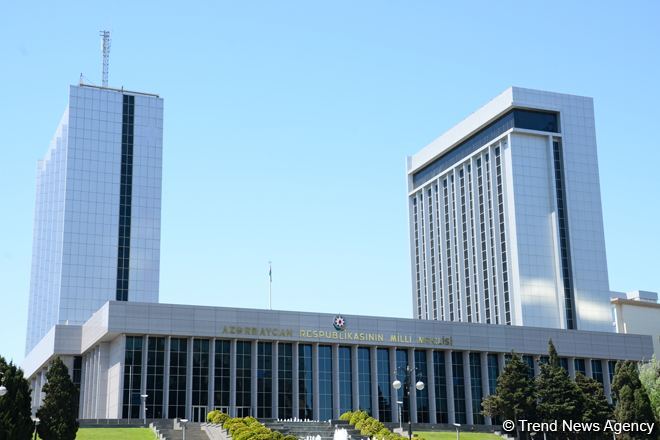AKU, Azerbaijan. Oct. 13
By Elchin Mehdiyev - Trend:
The Azerbaijani Parliament has sent appeals to a number of international organizations and national parliaments regarding the heavy artillery and missile attacks by the Armenian Armed Forces of apartment buildings located in the center of Azerbaijan's second largest city – Ganja, the press and public relations department of the Parliament told Trend.
According to the department, 60 letters were sent to the parliaments of 54 countries, as well as 21 letters to 11 international organizations, on behalf of the leadership and friendship groups with foreign parliaments.
The appeals say that an act of vandalism committed by Armenia caused the killings among civilians, and over 30 civilians were injured.
“The city of Ganja is located quite far from the zone of intense hostilities. On October 10, at the meeting of the foreign ministers of Azerbaijan and Armenia, held in Moscow with the mediation of Russia, a humanitarian ceasefire agreement was signed. Despite this, Armenia refused to fulfill the obligations arising from this agreement and seeks to further expand its aggressive policy,” the appeals emphasized.
The appeals also noted that along with Ganja city, Armenia also subjected to heavy artillery and missile fire the city of Mingachevir, which houses the industrial infrastructure and the largest power plant in the South Caucasus, as well as other settlements.
These Armenia’s attacks against civilians and civilian facilities are war crimes and a gross violation of international law, including the requirements of the Geneva Conventions of 1949, as well as other international documents, said the appeals.
In the appeals, the international community is urged to adequately respond to these events.
"No one should remain indifferent to such acts of aggression against the civilian population," the appeals said.
Armenian Armed Forces launched a large-scale military attack on positions of Azerbaijani army on the front line, using large-caliber weapons, mortars and artillery on Sept. 27.
Azerbaijan responded with a counter-offensive along the entire front. As a result of retaliation, Azerbaijani troops liberated a number of territories previously occupied by Armenia, as well as take important, strategic heights under control.
The fighting continued into October 2020, in the early days of which Armenia launched missile attacks on Azerbaijani cities of Ganja, Mingachevir, Khizi as well as Absheron district.
On October 6th, at about 9 pm (GMT+4), Armenian Armed Forces launched missiles at Azerbaijani Baku-Tbilisi-Ceyhan oil pipeline, the largest strategic project in the region, which plays an important role in Europe's energy security. Azerbaijani army was able to disable the missiles in the air, so no damage was done to the pipeline.
Following almost two weeks of intensive military confrontations, on Oct. 10 Armenia and Azerbaijan, with Russia's mediation, have agreed on a temporary ceasefire for humanitarian purposes, for exchange of prisoners of war as well as bodies of the dead. Despite the agreement, Armenia continues to violate the ceasefire regime in the direction of occupied Azerbaijani lands.
The conflict between the two South Caucasus countries began in 1988 when Armenia made territorial claims against Azerbaijan. As a result of the ensuing war, Armenian armed forces occupied 20 percent of Azerbaijan, including the Nagorno-Karabakh region and seven surrounding districts.
The 1994 ceasefire agreement was followed by peace negotiations. Armenia has not yet implemented four UN Security Council resolutions on the withdrawal of its armed forces from Nagorno Karabakh and the surrounding districts.






